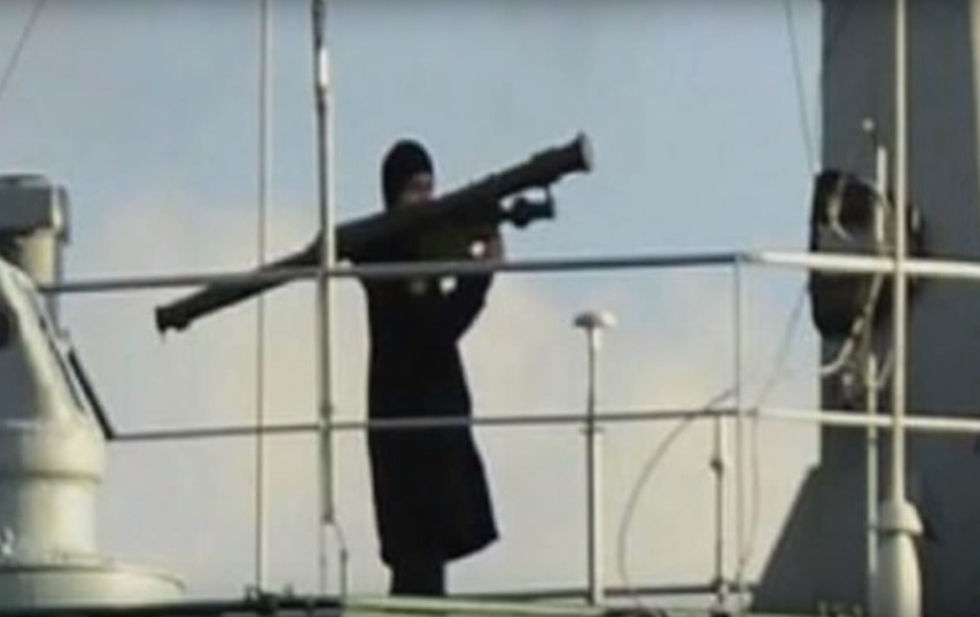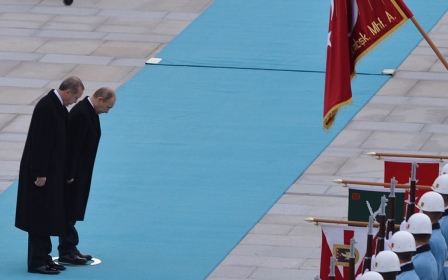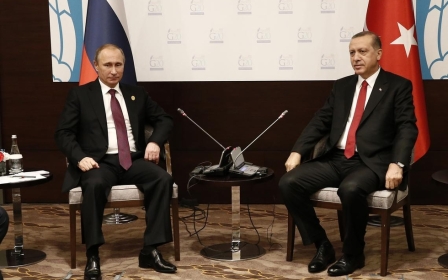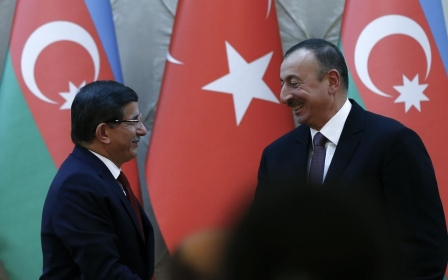Turkey summons Russian envoy over missile flaunting in Bosphorus

Turkey has summoned Russia's ambassador to Ankara after images of a Russian serviceman brandishing a rocket launcher on a warship navigating through Turkish waters were published, a foreign ministry official said.
Russian ambassador Andrey Karlov was summoned to the foreign ministry headquarters over the images published by the Turkish media on Sunday, the official told AFP, the latest escalation of tensions following Turkey's downing of a Russian warplane last month.
Turkey's private NTV channel broadcast pictures of what it said was a Russian serviceman aboard the Caesar Kunikov with a rocket launcher on his shoulder in the firing position as it passed through the Bosphorus Strait.
On Monday, Turkish Foreign Minister Mevlut Cavusoglu called on Russia to end "provocative acts" and said that Turkey had already taken the necessary steps in response to the incident, without giving further details.
"The ship's passage in such a way was clearly a provocation. This has to come to an end," Cavusoglu told Kanal 24 television.
"I hope it is an isolated incident, it is not a right approach," he said, calling on Russia to act as a "more mature state".
Turkish opposition daily Hurriyet reported that in comments to media earlier on Sunday, Cavusoglu had referred to the Montreux Convention. Dating from 1936, the treaty gives Turkey control of the Bosphorus and the Dardanelles - the waterways connecting the Black and Mediterraneans seas.
In recent weeks, some observers have questioned whether Turkey might close the waterways if tensions between the two countries further racheted up.
NTV reported that the Russian vessel in question from the country's Black Sea fleet passed through the Bosphorus on Sunday morning. However, other media said the incident occurred on Friday.
Moscow and Ankara are locked in their worst crisis since the Cold War over the 24 November jet downing on Turkey's border with Syria, sparking fury and economic sanctions from the Kremlin.
Middle East Eye propose une couverture et une analyse indépendantes et incomparables du Moyen-Orient, de l’Afrique du Nord et d’autres régions du monde. Pour en savoir plus sur la reprise de ce contenu et les frais qui s’appliquent, veuillez remplir ce formulaire [en anglais]. Pour en savoir plus sur MEE, cliquez ici [en anglais].




